I’m Terrified that Google Duplex Can Telephone People
At Google’s annual developer conference, I/O, a frightening new AI development was announced. The Google Assistant bot can now call people on the telephone and engage in natural unscripted conversations. Google Duplex is bringing robot / human interactions to heights unseen.
We’re going to talk about Google Duplex but in more saucy news, we also learned users can spice up their Google Assistant with John Legend as a sexy new voice.

What is Google Duplex?
Let’s begin by watching how Google unveiled it’s Duplex project to the public. Their promotional ad showcases a cheery multicultural world much improved since we could command robots to perform routine phone calls on our behalf.
A handsome couple want to go for a trendy meal and ask Google Assistant to make the booking:
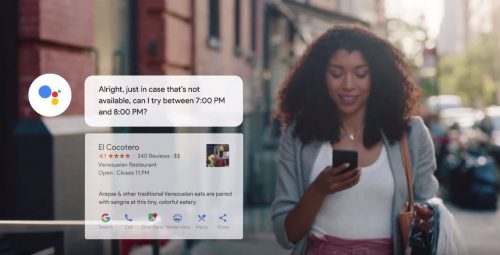
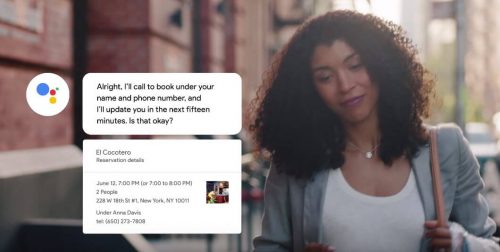
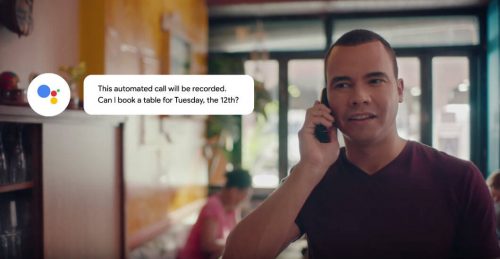
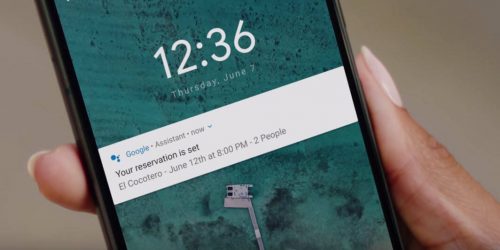
How does Google Duplex work?
Google have been researching voice for an unspecified number of years. They learned that a stilted robot voice calling businesses was often unsuccessful; Google’s Scott Huffman told reporters:”We’re not trying to trick people”.
Google now artificially replicates human-speech mannerisms. Humans don’t speak logically – natural speech is rife with micro-mistakes, corrections, verbosity and that awful upspeak where people make statements sound like questions?
The real shocker for Duplex is how the machine said ‘mhmm’ in the affirmative. The AI uses these noises in much the same as how people use them – giving itself a beat to compute the next part of the conversation.

When will Google Duplex be released?
While it is still unclear when Duplex will be available for the wider public, the AI is currently being tested in the real world. It ‘will be available in the next couple weeks at some test restaurants and hair salons in certain test markets’.
Presently Duplex immediately identifies itself as an automated system, if the recipient opts out of the call it ends. A human operator will then redial and manually complete the booking on the user’s behalf. Google are still working on bugs with Duplex, but revealed that it is completing calls with an 80% success rate.
Why do we need Google Duplex?
Ignoring the robot in the room, Duplex does fulfil some needs, aside from removing those somewhat annoying booking calls. Google assures us that this cutting-edge technology will save us from more than just tedious phone calls.
There are serious benefits for speech or voice-impaired users who may struggle with traditional phone calls. Another great use for Assistant is when you need to make calls on holiday and can’t speak the local language.
Here’s why Google Duplex scary
We already live in a world where Google has a frightening amount of information on us, for instance here’s Google’s map of everywhere I’ve been in Europe since 2012.
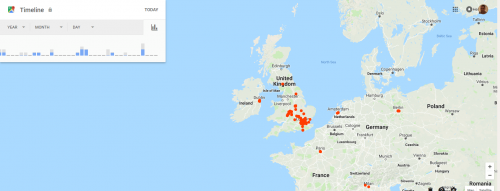
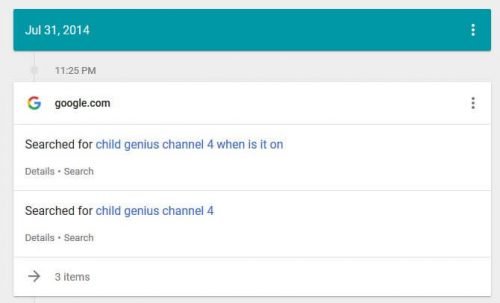
There is abundant evidence of Android phones secretly recording their user’s conversations. Google helpfully lists some of these creepy sound bites for your listening horror:
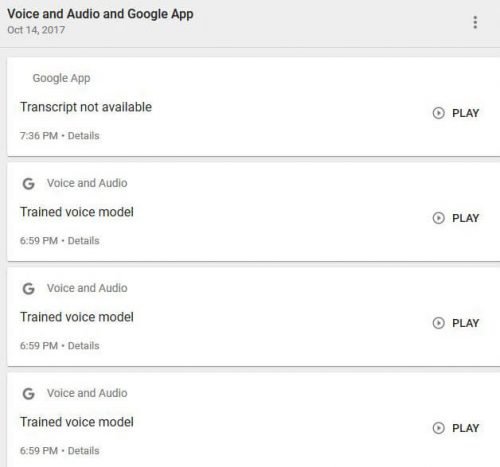
Google Duplex can access this data and masquerades as a human on the phone. There are plenty of unintended negative consequences of taking artificial intelligence to this level.
People have difficulty trusting the information online, thanks to the exposure of fake news. Now we might not be able to trust our own ears. While the technology is currently only in Google’s control, how will we cope when the scammers hijack it?
A new boundary has been crossed for artificial intelligence. We are closing in on a time where we can’t tell if you’re talking to a person or robot.


